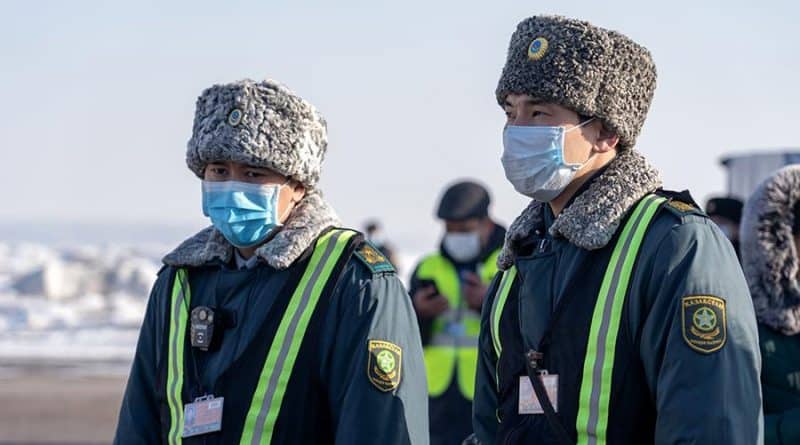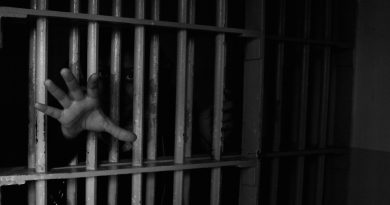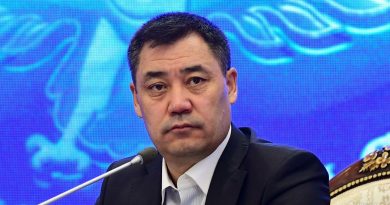In Kazakhstan, authorities threatened the media with criminal liability
Kazakh authorities threatened the media with criminal and administrative liability for disseminating knowingly false information during the state of emergency.
Recall that the state of emergency due to the coronavirus pandemia was introduced in Kazakhstan by Presidential decree from March 16 to April 15.
“In connection with the announcement of the pandemia of the coronavirus COVID-19 by the World Health Organization, there has been a recent increase in the spread of knowingly false information in the country. Considering the circumstances, the Ministry of Information and Social Development of the Republic of Kazakhstan, which performs the functions of monitoring compliance with the requirements of the legislation of the Republic of Kazakhstan in the field of mass media, notifies that under conditions of emergency, liability for violations of the law is increased, including media responsibility”, it was noted in the Department’s official appeal to the media.
The Ministry of Information and Social Development explained that the media are responsible “for posting knowingly false information on an Internet resource of the information owner, on the open data Internet portal or in other ways”.
“According to the Code of Administrative Offenses (CAO), the commission of an administrative offense in a natural disaster or other emergency circumstances is recognized as a circumstance aggravating liability for administrative offenses,” the Department emphasized.
The appeal also recalls that the television and radio broadcasting companies are administratively liable for the untimely distribution of a warning signal to the population about the threat to life, human health and the course of action in the current situation during natural and anthropogenic emergency situations, as well as in the interests of defense, national security and public order.
“For actions that provoke a violation of law and order or incite ethnic and religious hatred, actively prevent individuals and officials from exercising their legal rights and obligations, as well as maliciously disobeying the lawful order or demand of an employee of the internal affairs bodies, national security, military serviceman, government officials or the public performing official duties or public duty to protect public order, or actions that violate the public order and tranquility, as well as violation of the legislation on administrative supervision committed in the area, where a state of emergency was declared, the Code of Administrative Offenses imposes a fine of 40 monthly estimate indicators (about 260 US dollars) or administrative arrest for up to 30 days,” it was said in the message.
The Department also reminded that “the commission of a criminal offense in the state of emergency is a circumstance aggravating criminal liability and punishment”.
“For example, the dissemination of knowingly false information that creates the danger of disturbing public order or causing substantial harm to the rights and legitimate interests of citizens or organizations, or the interests of society or the state protected by law, in the state of emergency, shall be punished by restriction of freedom for a period from three to seven years or by imprisonment for the same period. In this regard, the Ministry of Information and Social Development draws the attention of the media, users of social networks and messengers to the need for strict observance of the law in the state of emergency, to prevent the spread of knowingly false information, as well as other unlawful information that can destabilize the situation in the country,” the appeal summarizes.
Meanwhile, Kazakh journalists also had claims against the authorities because of the introduction of an emergency regime. In particular, the reason for dissatisfaction was the decision to do briefings and press conferences online due to the threat of coronavirus. The League of judicial journalists of Kazakhstan even made an official appeal to the President Kasym-Zhomart Tokaev. In it, journalists ask the head of state to allow them to attend offline briefings and events of state bodies.
“It means that residents of the country should receive all the information during briefings that will take place online. However, from our practice, we know that officials like to evade burning questions, do not provide comprehensive explanations, and are limited to a dry statement of convenient facts. In this regard, we consider the presence of journalists at government briefings necessary. In addition, we regard the restriction of journalists’ physical access to information as a violation of the Law on the media, deliberate concealment of facts from the population, ignoring the real problems of citizens of Kazakhstan,” the appeal notes. Its copies were also sent to Prime Minister Askar Mamin, Senate Speaker Dariga Nazarbaeva, Lower House Speaker Nurlan Nigmatulin, Minister of Information and Social Development Dauren Abaev.




